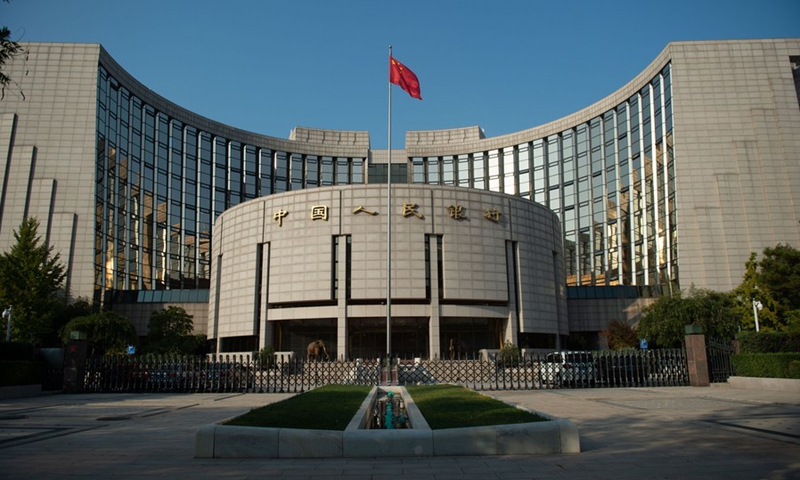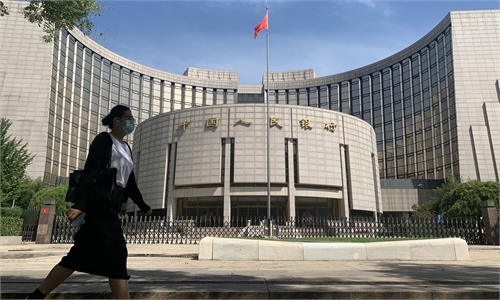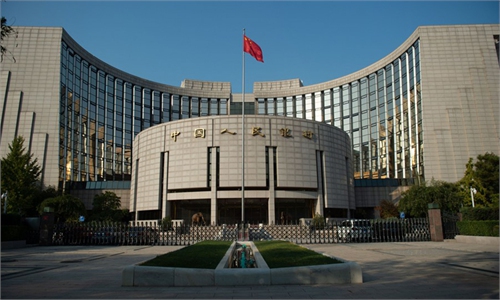PBC inaugurates provincial and city-level branches, a milestone in institutional reform of financial supervision

Photo shows an exterior view of the People's Bank of China in Beijing, capital of China. Photo: Xinhua
The People's Bank of China (PBC), the country's central bank, inaugurated various branches at provincial and city levels on Friday, marking an important institutional reform by the central bank which observers said is conducive to more effective marco policy coordination and financial supervision.
In line with the State Council institutions reform plan adopted by the national legislature in March, PBC's branches in 31 provinces (autonomous regions and municipalities), 5 cities including Shenzhen, Dalian, Northeast China's Liaoning Province, Ningbo, East China's Zhejiang Province and Xiamen, East China's Fujian Province, as well as 31 prefecture-level smaller cities unveiled nameplates and were put into operation on Friday.
Under the reform plan, China would discontinue the central bank's regional branches and their business management departments, as well as branches at the provincial capitals - a management system that had been implemented since 1998. And the newly set-up local branches will be managed based on administrative regions.
Lian Ping, chief economist and head of the Zhixin Investment Research Institute, said that the reform represents a "timely adjustment."
Regional branches sometimes are unable to address the economic disparity between different areas due to the vast areas involved, which makes it very difficult for monetary policy to achieve designed effect. They're also unmatched to local financial supervision system, so the reform would address all those chronic issue, observers said.
They stressed that such overhaul would not impair the central bank's function, but would make its positioning more clear and precise.
An industry insider who prefers not to be named told the Global Times on Friday that the new management system will help draw a clear line between the responsibilities of central bank and local regulatory bodies, so that the PBC would focus more on the works involving "macro control and macro-prudential supervision."
The PBC now has a number of primary goals, including preventing and diffusing systematic financial risks, maintaining the stability of currency as well as making the financial sector better serve the real economy.
Meanwhile, branches of the central bank are expected to coordinate with local governments to maintain local financial stability, as some localities are faced with local debt issues.
As part of the institutional reform, the National Administration of Financial Regulation was set up in May, directly under the State Council, China's cabinet. The new administration is in charge of regulating the financial industry, with the exception of the securities sector, and is expected to improve the country's modern financial regulation, and promote full coverage of financial regulation in the sector. It will take over certain functions of the PBC and the China Securities Regulatory Commission.


